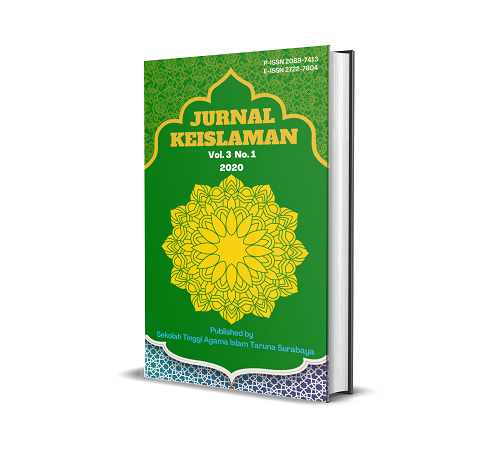Manajemen Mutu terhadap Peningkatan Kualitas Lembaga Pendidikan Islam
Abstract
Abstract: The term management has many meanings, management is directing / leading something of effort through planning, organizing, coordinating and controlling human resources and materials aimed at achieving predetermined goals. In the science of management there is the concept of problem solving that is placed in the workplace, namely the P-D-C-A approach as a process of solving problems with a continuous and systematic pattern. While management can also be defined as a process of organizing and utilizing the resources of the organization through the cooperation of members to achieve organizational goals effectively and efficiently. The practice of organizing education can be analogous to the production process in a company (industry). It's just that the products produced by educational institutions in the form of services. Therefore educational institutions can be said as service companies. From this perspective, the quality and quality of services (services) produced is a measure of the quality of an educational institution. Namely the extent of customer satisfaction with the services produced. What is meant by customers here are internal customers, namely teachers and other education personnel, and external customers, namely students and related parties outside the educational institution. Thus, schools are said to be of good quality if they are able to provide services according to or even exceed the expectations of teachers, employees, students, and other related parties such as parents, funders, the government or the world of work of users of graduates. Keywords: quality management, educational institutionsCopyright (c) 2020 Mila Mahmudah

This work is licensed under a Creative Commons Attribution-ShareAlike 4.0 International License.
Authors who publish with this journal agree to the following terms:
- Authors retain copyright and grant the journal right of first publication with the work simultaneously licensed under a Creative Commons Attribution-ShareAlike that allows others to share the work with an acknowledgement of the work's authorship and initial publication in this journal.
- Authors are able to enter into separate, additional contractual arrangements for the non-exclusive distribution of the journal's published version of the work (e.g., post it to an institutional repository or publish it in a book), with an acknowledgement of its initial publication in this journal.
- Authors are permitted and encouraged to post their work online (e.g., in institutional repositories or on their website) prior to and during the submission process, as it can lead to productive exchanges, as well as earlier and greater citation of published work (See The Effect of Open Access).






















